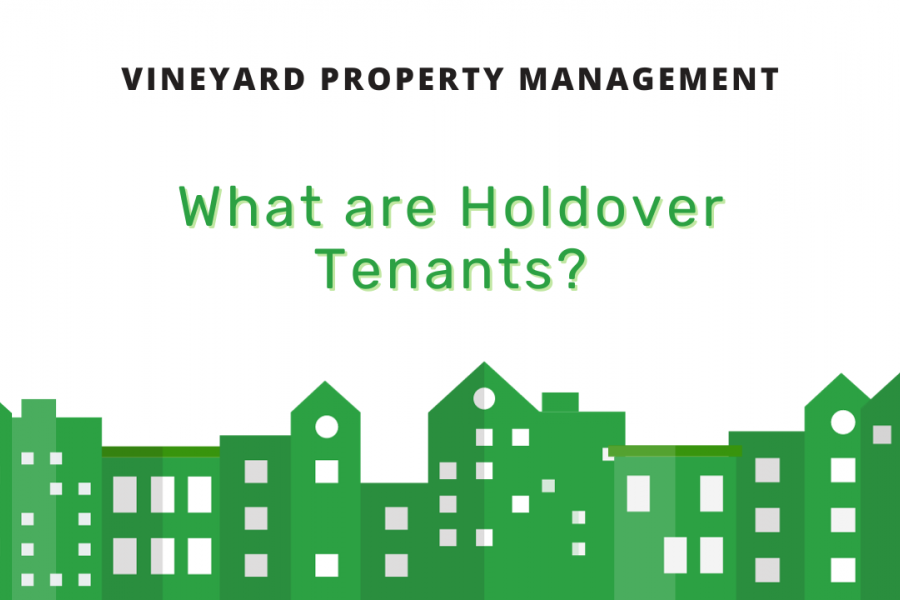
As a landlord, you've likely encountered a myriad of challenges that come with managing rental properties. From screening potential tenants to addressing paperwork, the responsibilities can often seem endless. One aspect of property management that can catch even the most experienced landlords off guard is the situation of a holdover tenant.
Who are the Holdover Tenants?
Holdover tenants are individuals who continue to live in a rental property after their lease term has expired. In other words, they "hold over" beyond the agreed-upon lease duration until the landlord initiates eviction proceedings.
In such a scenario, the tenant is classified as a "tenant at sufferance," signifying that their continued presence is contingent upon the landlord's tolerance. Importantly, the landlord retains the authority to terminate the tenancy and proceed with eviction at any juncture.
The reasons for a tenant becoming a holdover can vary. It might be due to oversight, a failure to secure alternative housing, or a deliberate choice to stay without formalizing the arrangement.
Holdover tenancy can present challenges for both landlords and tenants, as it often involves legal considerations and potential consequences.
Risks of Holdover Tenants for Landlords
Dealing with holdover tenants as a landlord comes with a set of risks that can impact both your property and your business. Understanding these risks is crucial for making informed decisions and taking proactive measures to avoid making mistakes.

Here's an exploration of the key risks associated with holdover tenants:
Rent Payment Ambiguity
Holdover situations often bring about uncertainty regarding rent payments. Without a formal agreement or clear terms for the extended tenancy, collecting rent can become a source of contention. This ambiguity can lead to financial strain for landlords and disrupt the regular cash flow from the property.
Property Damage and Maintenance Issues
As tenants remain on the property beyond the lease term, the risk of property damage may increase. Without a renewed lease in place, landlords may face challenges in holding tenants accountable for damages or ensuring that necessary maintenance is conducted promptly.
Potential Impact on Future Tenancies
The presence of holdover tenants can complicate the process of securing new tenants. Prospective renters may be wary of a property with unresolved tenancy issues, leading to extended vacancies and revenue loss for landlords.
Erosion of Landlord-Tenant Relationship
Misunderstandings and conflicts can strain the relationship between landlords and holdover tenants. Effective communication becomes crucial in navigating these situations, as strained relationships may lead to difficulties in reaching mutually beneficial resolutions.
Legal Complications
Holdover tenancy involves navigating a legal gray area. Without a clear understanding of the legal framework and appropriate actions, landlords may inadvertently violate tenant rights or face legal challenges. This can result in prolonged disputes, legal expenses, and potential damage to the landlord's reputation.

Increased Eviction Risks
If holdover tenancy issues escalate, landlords may find themselves in a position where eviction becomes necessary. Eviction processes can be time-consuming, expensive, and emotionally draining for all parties involved, underscoring the importance of addressing holdover situations proactively.
How to Handle a Holdover Tenant
Handling a holdover tenant involves two primary options:
Allow Them to Stay
If you choose to let the tenant stay, continue collecting rent as usual. Be aware that allowing them to remain may limit your ability to evict them later, as holdover rights may come into play.
Pursue an Eviction
If the decision is to remove the tenant, initiate the eviction process. This typically involves serving a notice of removal, which will be a bit different than a move-out letter for a typical tenant. It must adhere to the required notice period (often 30 days) and follow your state's legal procedures. Grounds for eviction may include non-payment of rent, damages beyond normal wear and tear, or engaging in illegal activities on the property.
How to Avoid a Holdover Tenant
Preventing holdover tenancy involves proactive measures and clear communication to ensure a smooth transition at the end of the lease term. Here are some effective strategies for avoiding holdover tenants:
Clear Lease Terms
Ensure that your lease agreements have explicit terms regarding the lease duration, renewal procedures, and the consequences of holdover. Clearly communicate to tenants when the lease is set to expire.

Advance Notice of Lease Expiration
Provide tenants with ample notice before their lease expires. This gives them sufficient time to decide on renewal or to make arrangements for moving out.
Consider offering incentives for tenants who provide early notice of their intentions, whether it's to renew the lease or to vacate the property. This can encourage proactive decision-making.
Regular Communication
Maintain open lines of communication with tenants throughout their lease term. Check-in periodically to discuss their intentions regarding lease renewal or moving out. Address any concerns or questions they may have.
Educate Tenants
During the lease signing process, educate tenants about the implications of holdover tenancy. Clearly explain the potential consequences and legal ramifications to encourage compliance with lease terms.
Professional Property Management
Consider hiring a professional property management company. They can handle lease renewals, communicate with tenants, and ensure that all necessary steps are taken to avoid holdover situations.
The Dynamics of Periodic Tenancy in Rental Agreements
Periodic tenancy, characterized by its lack of a fixed lease term, automatically renews at the end of each period, offering flexibility for tenants and a stable income stream for landlords. While tenants enjoy the freedom to rent for short periods without frequent renewals, landlords benefit from a consistent revenue flow.
However, the tenancy continues to roll over unless terminated with proper notice, the duration of which depends on jurisdiction and lease terms. Effective communication between landlords and tenants is crucial to navigate the dynamics of periodic tenancy successfully.

Bottom Line
Understanding the legal framework, communicating effectively with tenants, and considering various tips help in addressing holdover tenancy. The risks involved, from rent payment ambiguities to potential legal complications, underscore the need for landlords to be vigilant and well-prepared.
For personalized assistance in optimizing your property management practices, consider reaching out to Vineyard Property Management. Our team is dedicated to providing expert guidance and tailored solutions to enhance your property investment experience.
